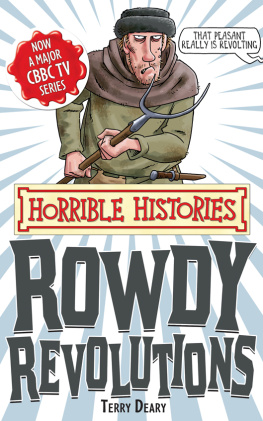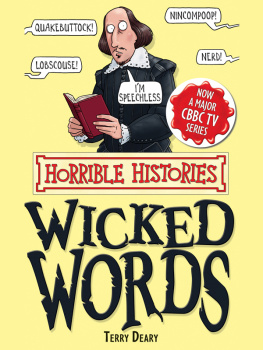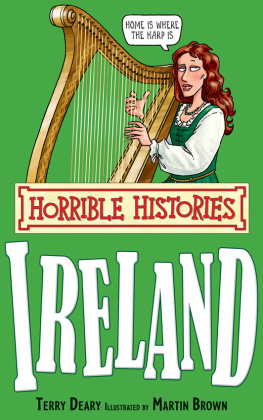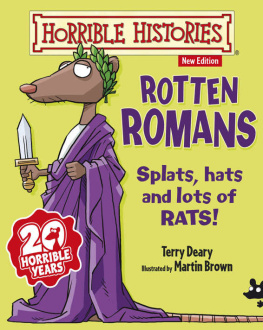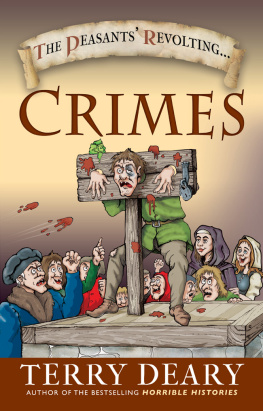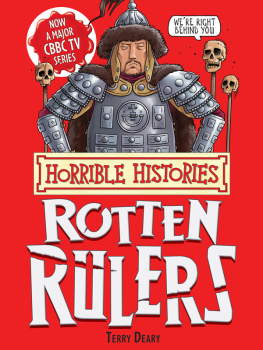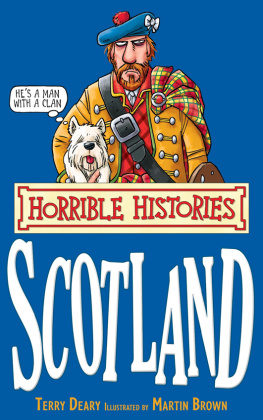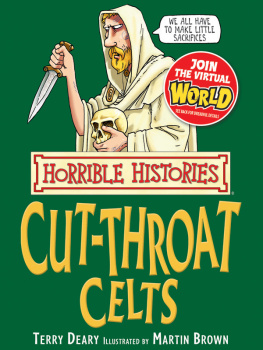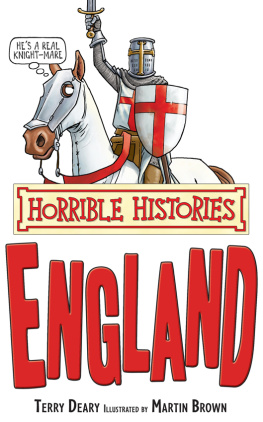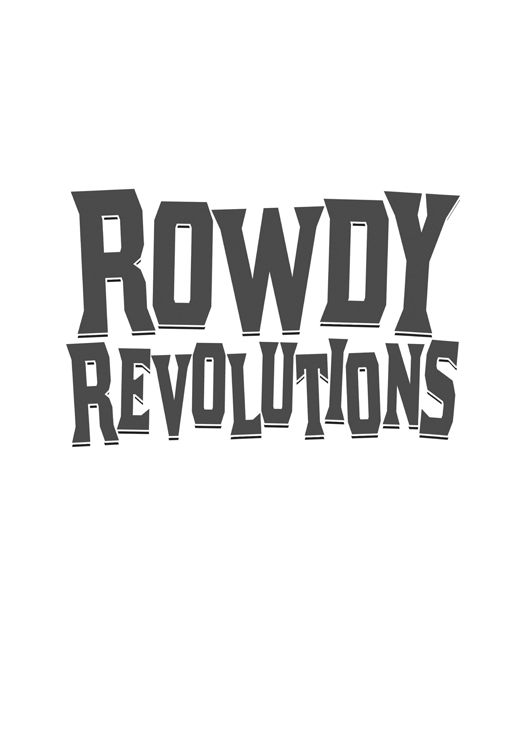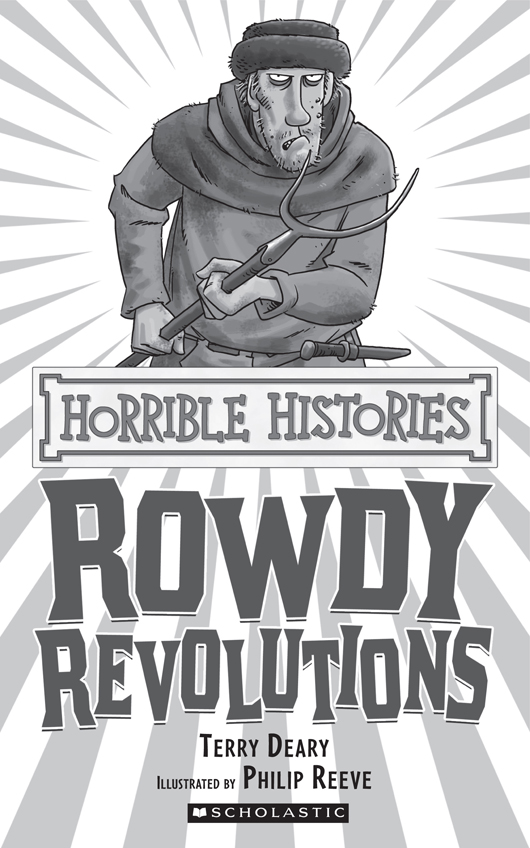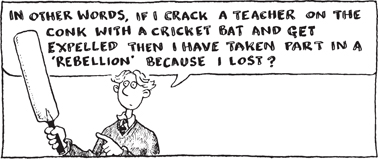History can be horrible. But some bits of history are more horrible than others. And one of the most gruesome, gory and gut-churning bits of history is the history of revolutions and rebellions. Whats the difference between a revolution and a rebellion? Glad you asked me that
It can be fun to be a revolutionary and a winner. Make your own school rules and timetable!
The trouble with being a rebel (and a loser) is you usually get punished. In your case it may be execution through an overdose of school dinners, or something worse.
If you look in history books youll find there are lots of rebellions but fewer revolutions. Thats because the people in power usually win and the rebels usually come to a sticky end.
Of course most school history books dont tell you what went wrong with the failed rebellions. They dont want you to learn from the rebels mistakes! But this is a horrible history book. At last you can learn the terrible truth, the tricks and tactics that work and the foul fate that awaits the failures.
Of course, you would never actually use what you learn from this book to lead a revolution against the people in charge of you! Would you?
Awful ancients
Flood is thicker than water
How did we humans get here on Earth? Thats a question humans have been asking ever since they invented question marks.
And there have been a few million answers to the question. Many of these answers involve gods making human beings, and the people of ancient Babylon were among the first to come up with stories to explain it.
Now heres the truth: it started with a revolution! This story may look familiar to those of you who have heard the Bible stories
The Epic of Atra-Hasis
Chapter 1
In the beginning were the gods. And the top god was called Enlil. Enlil was a bossy god.
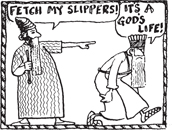
Ye shall dig in all the fields and build a mansion made of many rooms, great Enlil spake unto the lesser gods. Enlil was a lazy god.
Why should we do all the work? the lesser gods they grumbled greatly. For the lesser gods were lazy too. And so there was a revolution, this the first in all the world.
Then the laziest god of all, Enki, came up with a bright idea. We are gods. Why do we not make a race of beings who shall do all the working for us?
Good idea, mate, his fellow gods said. So they created the human race.
And these humans slaved and dug upon the Earth and did great works that pleased the gods. But they did not please the top god, Enlil.
These human beings are far too noisy. How they squabble, how they argue, how they shriek and how they moan. Lets exterminate these human vermin.
So great Enlil sent a plague that made the humans sick and die. But still some humans lived.
So great Enlil sent a famine that made the humans starve and die. But still some humans lived.
So great Enlil sent a drought that made the humans thirst and die. But still some humans lived.
All right, thats it, great Enlil said. Ill send a flood and lets see who can live beneath a mile of waves. They have no gills, and theyre not fish, theyll drown and that will be the end.
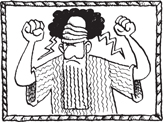
But lazy Enki went to Earth and found a human, Atra-Hasis, such a good man who did not deserve to die. Build a boat and load your family, and take a pair of every animal here on Earth.
And Atra-Hasis did as he was told. So, when it rained for 40 days (not to mention 40 nights), then Atra-Hasis and his family lived.
And when the waters sank back down and Atra-Hasis landed, then the human race was saved.
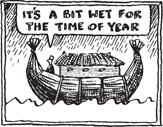
Of course the mighty Enlil he was cross. Who dared to tip the wink to Atra-Hasis?
Then the lazy Enki he spake forth. We had to do it. We needed someone who could go on making sacrifices.
And Enlil thought and Enlil spake and he said, Thats good thinking, Enki, son. And so he let the humans live.
And here we are today to prove it.
Recognize the story? Youre Noah good at Bible Studies if you dont!
But its interesting that the Babylonian story of creation of humans comes about because of a revolution. Gods refusing to do what they are told.
The story may not be true, but it shows that the awful ancients who wrote it knew all about revolutions 4,000 years ago.
Their message is clear revolutions have not been going on for as long as human kind. Theyve been going on longer !
Mesopotamian munchers
Aristotle was a clever ancient Greek (born 385 BC , died 322 BC ) who knew all about revolutions. He said, cleverly

Over 2,350 years later and rulers/bosses/teachers still believe in overworking their subjects/workers/pupils to wear them out and stop them making trouble.
In Mesopotamia in 1780 BC the kings of Mari made their workers build a huge palace. It covered the area of seven football pitches and had 300 rooms. While the peasants scraped a living from farming wheat, the kings ate gazelle meat (which was too deer for the peasants), ostrich eggs (an emu-sing meal but think of the giant egg-timer youd need) and their favourite grasshoppers eaten off wooden skewers (that would keep the kings chirpy).
As Aristotle said, the peasants were probably very jealous of the posh people in the palace, but too exhausted to revolt.
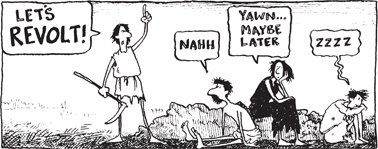
Yet that hasnt always worked in history, as some miserable ancient monarchs found to their cost.
Shang bang
In 1025 BC the Shang family who ruled China were overthrown by the Zhou people who used to serve them.

